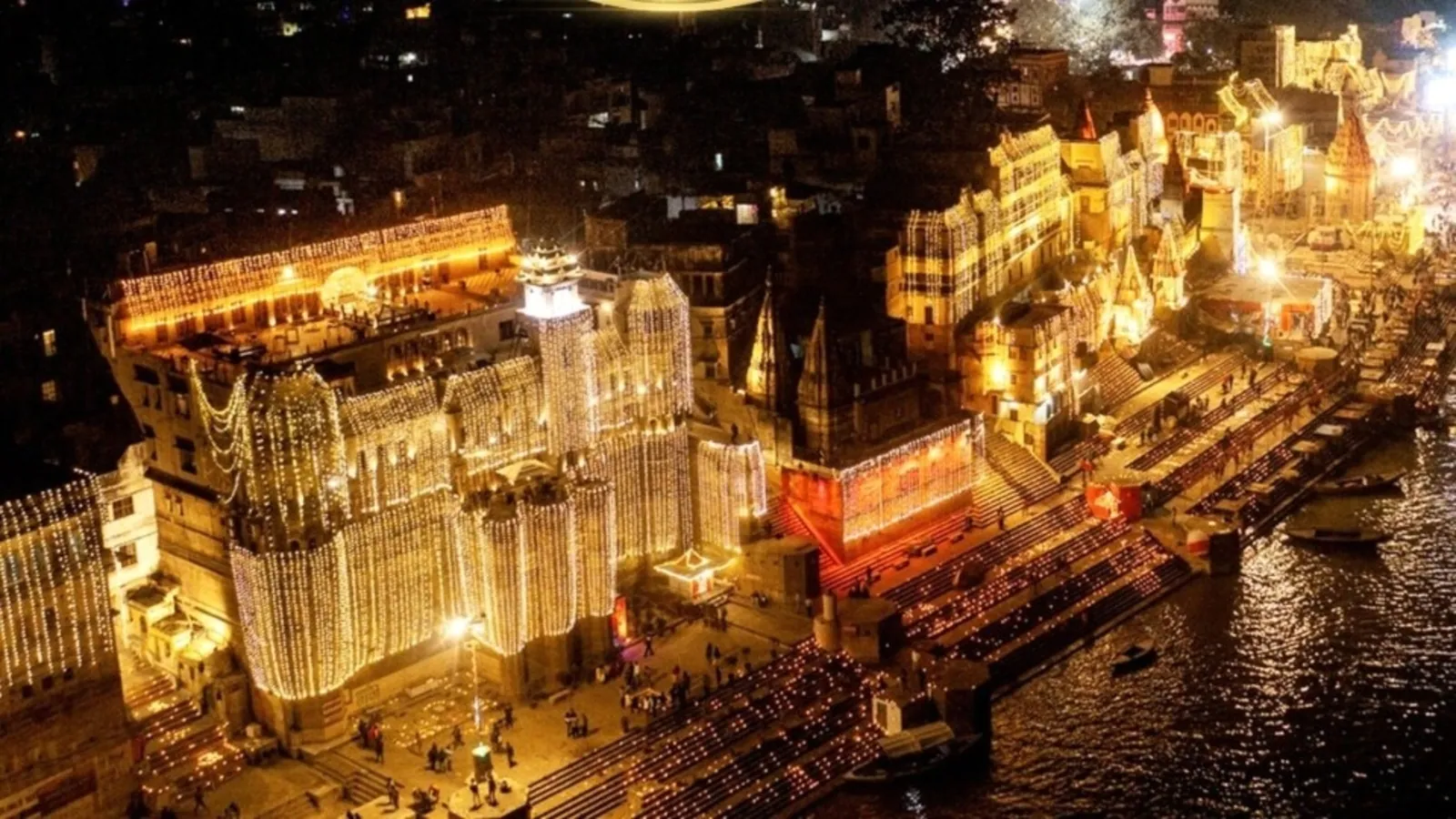Overview:
Varanasi, also known as Kashi or Banaras, is not just a city; it's a spiritual experience, an embodiment of ancient traditions, and a cradle of mysticism. Among the many festivals that grace the city's calendar, Dev Diwali holds a special place. Known as the "Festival of Lights of the Gods," Dev Diwali is a celebration that bathes Varanasi in a mesmerizing radiance, spiritually charged rituals, and a profound sense of divinity. In this extensive guide, we delve deep into the heart of Varanasi's Dev Diwali celebration, exploring its history, significance, rituals, and the enchanting atmosphere that engulfs the city during this sacred time.
1: Dev Diwali - A Glimpse into the Spiritual Tapestry
Dev Diwali, also referred to as Kartik Purnima, is a grand festival celebrated on the full moon night in the Hindu month of Kartika (usually in November). While Diwali, the Festival of Lights, is celebrated across India with lamps and fireworks, Varanasi elevates this celebration to a spiritual crescendo. Dev Diwali marks the return of Lord Shiva to Kashi and is observed with great fervor by both locals and pilgrims.
2: The Significance of Kartik Purnima
Kartik Purnima is considered one of the most auspicious days in the Hindu calendar. It is believed that on this day, the gods descend to Varanasi to take a dip in the holy Ganges River and bless the city with their divine presence. Hindus believe that taking a dip in the Ganges on Kartik Purnima cleanses one's sins and bestows spiritual merit.
3: Preparations and Decorations
The preparations for Dev Diwali begin weeks in advance. The entire city gets a makeover with streets and ghats cleaned, and buildings and temples adorned with colorful lights and decorations. Clay lamps (diyas) are lit everywhere, casting a warm and ethereal glow that transforms the city into a celestial realm.
4: The Ghats of Varanasi
The ghats of Varanasi are the soul of Dev Diwali celebrations. Each ghat has its unique significance, and during this festival, they come alive with activity and devotion.
Dashashwamedh Ghat: The main ghat, Dashashwamedh, is the epicenter of Dev Diwali celebrations. The Ganga Aarti here is world-famous and becomes even more grand and mesmerizing during this festival. Thousands of devotees and tourists gather to witness the aarti as priests perform rituals with incense, lamps, and conch shells, while chanting hymns and offering prayers to the river goddess.
Assi Ghat: Assi Ghat is where Lord Shiva is believed to have landed during his return to Varanasi. Special rituals and celebrations take place here, including a grand procession.
Manikarnika Ghat: This ghat, where the cremation fires never cease, holds a profound spiritual significance. During Dev Diwali, the atmosphere at Manikarnika Ghat becomes even more poignant as people light lamps and float them in the river as offerings to departed souls.
5: Ganga Snan (Holy Dip) and Rituals
Devotees wake up before dawn to take a holy dip in the Ganges. The riverbanks are filled with people, all dressed in clean, traditional attire, performing rituals and prayers. Taking a dip in the sacred river on Kartik Purnima is believed to cleanse one's sins and lead to spiritual liberation.
6: Rangoli and Artistry
Dev Diwali also witnesses the creation of intricate rangoli designs made from colourful powders, flower petals, and rice flour. These beautiful patterns adorn the ghats and courtyards of temples, adding to the festival's visual splendour.
7: Musical and Cultural Performances
The cultural ambiance of Dev Diwali is enriched by classical music and dance performances. Renowned artists and musicians from across India often grace the city during this time, providing a feast for the senses with their soul-stirring melodies and graceful dances.
8: The Boat Procession
One of the most captivating moments of Dev Diwali is the Ganga Mahotsav, a grand boat procession that takes place on the river. Lavishly decorated boats, adorned with thousands of flickering lamps, glide gracefully on the Ganges. The sight of the illuminated boats against the dark waters is a breath taking spectacle that leaves a lasting impression.
9: Spiritual Significance
Dev Diwali is not just a festival of lights; it's a celebration of divinity. The rituals and ceremonies performed on this day are believed to invoke the blessings of the gods and goddesses, ensuring the well-being and spiritual progress of the devotees. It's a time when the entire city is in a state of spiritual communion, transcending the boundaries of the material world.
10: Festive Cuisine
Dev Diwali is also a time to savor the flavors of Varanasi's cuisine. The city's sweet shops prepare a delectable array of sweets and traditional dishes that are offered to the gods and shared with family and friends. Malaiyo, a frothy milk dessert, is a special favorite during this festival.
11: The Aura of Dev Diwali
The aura of Dev Diwali in Varanasi is magical and transformative. The city's spirituality, traditions, and devotion come alive, and the atmosphere is filled with a sense of oneness and reverence. It's a time when travellers and pilgrims alike can immerse themselves in the spiritual essence of Varanasi and witness the convergence of the earthly and the divine.
Conclusion:
Varanasi's Dev Diwali is a celebration like no other. It's a festival that transcends the ordinary and takes you on a journey into the heart of spirituality, tradition, and devotion. The city's ghats, lit up with countless lamps, the resonant chants, the ethereal music, and the palpable sense of divinity create an atmosphere that is both enchanting and transformative. Dev Diwali is not just a festival; it's an experience, an immersion into the mystique of Varanasi, and an opportunity to witness the divine in all its radiant glory.
